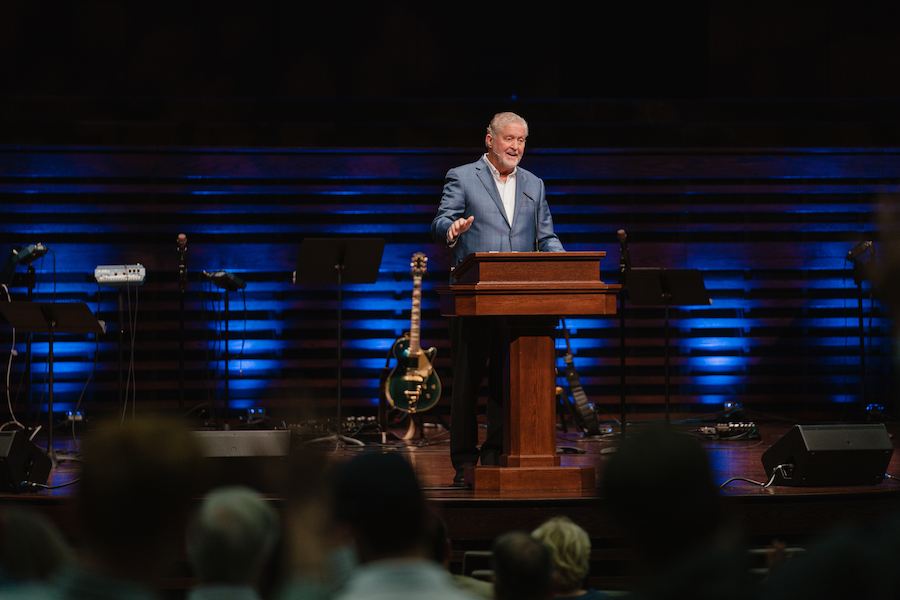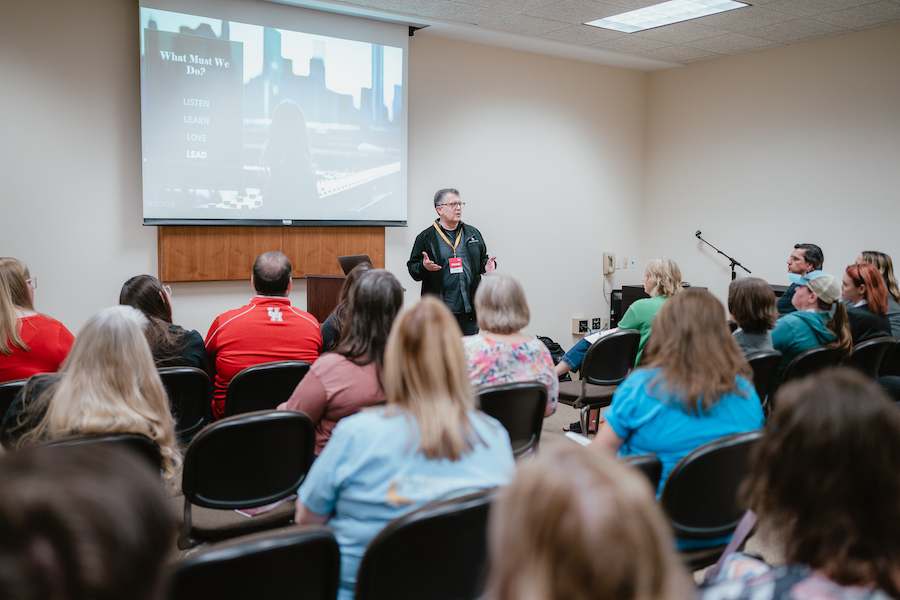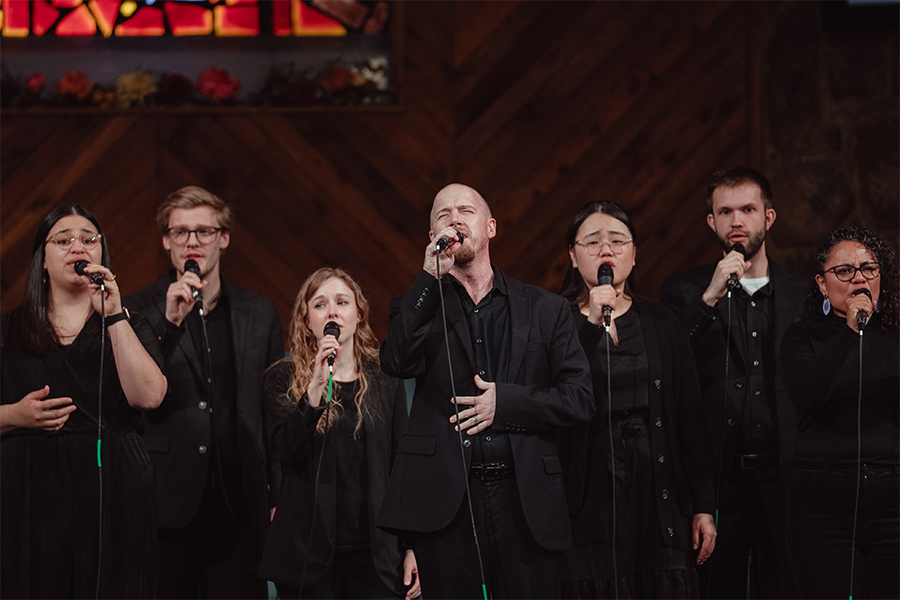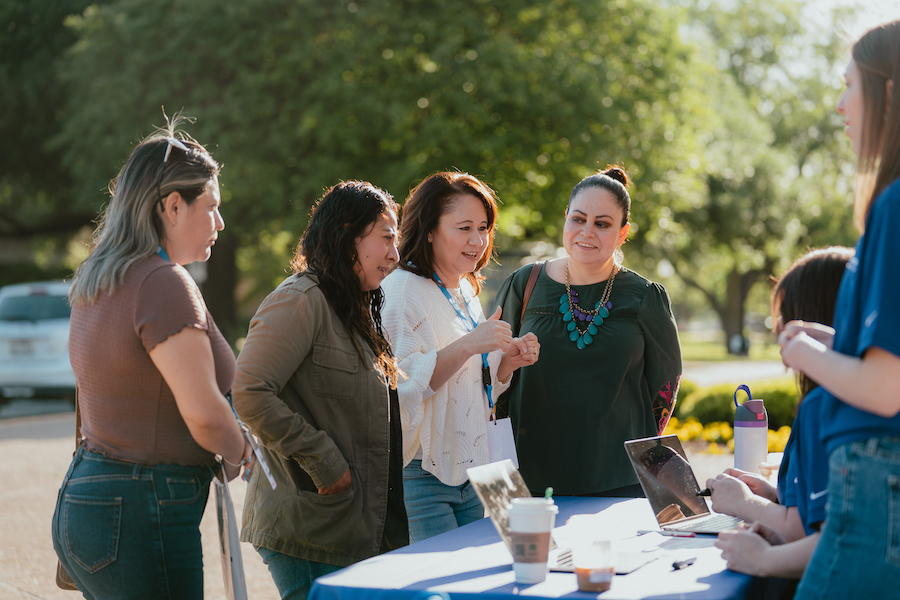Amidst COVID-19 crisis, Fort Worth church reaches community through drive-thru food pantry, prayer tent
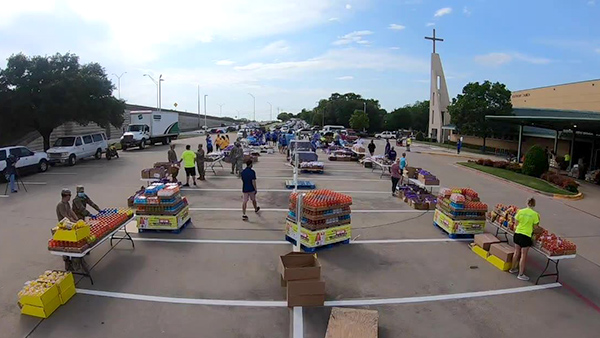

In the wake of the COVID-19 pandemic, many people are struggling to find reliable means of feeding their families. Upon seeing this need in their own Fort Worth community, Southcliff Baptist Church, with volunteer help from The Southwestern Baptist Theological Seminary, has responded by partnering with the Tarrant Area Food Bank to establish a drive-thru food pantry in the church’s parking lot.
Since March 10, Southcliff has hosted a free drive-thru pantry every Tuesday night from 5-7 p.m. (or while supplies last). Individuals remain in their cars while volunteers (wearing gloves and masks) place a box of food in the backseats or trunks of their vehicles.
This effort is an entirely volunteer-run operation, and many of these volunteers are current students and alumni of Southwestern Seminary.
Two-time graduate of Southwestern Seminary Emmanuel Escareno from San Jose, California, has served every week so far. He explains that he saw an opportunity to bring some relief to a community in need.
“I wanted to support our church leadership’s commitment to be the hands and feet of Christ to those in our community,” Escareno says. “I get to come face-to-face, from a distance and with a mask, with those coming to our church to receive assistance. I get to meet people in our community who may not come to our church otherwise.”
Stu Cocanougher, share strategy pastor at Southcliff who oversees operations, says they have been able to serve thousands of people every week. During their April 28 food pantry, the church distributed 30,000 pounds of food to more than 500 families.
Master of Arts student Paige Lister from Shamrock, Texas, is a missions intern at Southcliff and has served at the majority of the food pantries, primarily during the registration process. She says that, through this role, she hears people’s stories of need and desperation.
“It is obvious even as we just ask a few questions to register them that there is a heavy weight they are bearing,” Lister says. “Our prayer and hope is that the community ultimately does not see our efforts, but rather comes to have a clearer understanding of Christ through receiving food and seeing Christians serve others.”
As a separate component, the church also sets up a drive-thru prayer tent each week for anyone who desires to receive prayer. Cocanougher explains that this is not an obligation or “prerequisite” to receiving the food, for although it takes place at the same time, the prayer tent is a separate function from the food bank. However, he adds, they wanted to provide people the opportunity to receive prayer and hear the message of the Gospel, even while maintaining safety protocols.
“While they are waiting in line,” Cocanougher says, “we have some folks who hand out hundreds of Jesus films on DVD in multiple languages, Gospels of John, as well as materials on preventing COVID-19 and where else they can find food pantries.”
“Before they leave,” Cocanougher explains, “they can go straight to exit or they can turn right into a prayer tent where we have people who can pray for folks in English, Spanish, and Arabic.”
Escareno, who has served in both the food distribution and prayer ministry components, says both offer an opportunity to see the people of his community and a tangible example of the great needs that exist.
“Surprisingly, many people take us up on the offer and allow us to pray for them in the name of Jesus,” Escareno says. “I really enjoy this aspect of our ministry as we meet physical needs but are praying for these people and sharing the Gospel with them in the process.”
